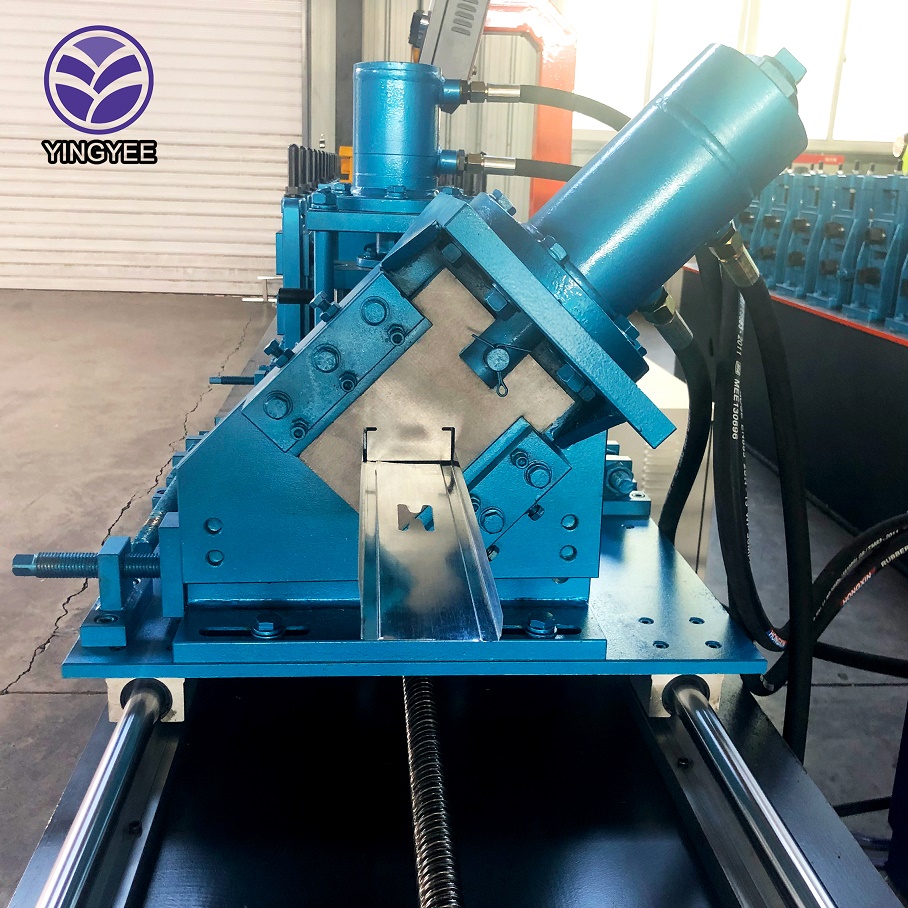
The Evolution of Roof Tile Rolling Forming Machines A Key to Modern Construction
In the dynamic landscape of modern construction, efficiency, durability, and design versatility are critical factors driving the selection of building materials. Among the various components that contribute to a structure's integrity and aesthetics, roofing stands out as a vital element. Roof tile rolling forming machines have emerged as essential equipment in the manufacturing of roofing materials, particularly for the production of durable and aesthetically pleasing roof tiles.
Understanding Roof Tile Rolling Forming Machines
Roof tile rolling forming machines are specialized equipment designed to transform raw metal sheets into finished roofing products. The process involves feeding metal coils into the machine, where they are progressively shaped, cut, and formed into tiles that can withstand diverse weather conditions. This technology has dramatically changed how roof tiles are produced, moving from traditional, labor-intensive methods to more streamlined, automated processes.
Advantages of Using Roof Tile Rolling Forming Machines
1. Efficiency and Speed One of the primary benefits of these machines is their efficiency. They can produce large quantities of roof tiles in a short period, meeting the demands of large construction projects without sacrificing quality.
2. Consistency and Precision Roof tile rolling forming machines ensure that each tile is produced with high precision and consistency. Advanced technology allows for uniformity in size and shape, which is essential for both aesthetics and structural integrity.
3. Material Versatility These machines can work with various materials, including galvanized steel, aluminum, and even stainless steel. This versatility allows manufacturers to cater to different market needs and preferences.
4. Customization Modern machines offer options for customization, enabling producers to create unique tile designs and profiles. This capability helps builders meet architectural specifications and enhances the visual appeal of structures.
5. Cost-Effectiveness Although the initial investment in rolling forming machines may be significant, the long-term savings due to reduced labor costs, minimal material waste, and enhanced production efficiency make them a wise choice for manufacturers.
The Production Process

The operation of roof tile rolling forming machines typically involves several key steps
- Material Preparation High-quality metal coils are selected and prepared for processing. This preparation stage is critical to ensure the finished product’s durability and appearance.
- Feeding and Forming The metal coil is fed through a series of rollers that gradually shape the flat sheet into the desired tile profile. Each pass through the rollers refines the tile, ensuring it meets specifications.
- Cutting Once the desired shape is achieved, the machine cuts the tiled sheets to the appropriate lengths. This step is crucial as it affects both the installation process and the overall aesthetics.
- Finishing After cutting, the tiles may undergo additional treatment, such as coating for weather resistance or aesthetic finishes. This ensures that the tiles not only function well but also enhance the building's visual appeal.
Trends and Innovations
The roofing industry is continuously evolving, with increasing demand for sustainable and energy-efficient materials. As a result, manufacturers are incorporating eco-friendly practices into their production processes. Innovations such as the use of recycled materials in metal tiles and energy-efficient machines are becoming more common.
Furthermore, automation and Industry 4.0 technologies are poised to revolutionize roof tile production. Smart factories featuring interconnected machines can monitor production quality in real-time, leading to fewer defects and a more efficient workflow.
Conclusion
Roof tile rolling forming machines play a pivotal role in the future of roofing material manufacturing. They streamline production, support customization, and enhance product quality, making them indispensable in modern construction. As technology continues to evolve, we can expect even more advancements that will further enhance the efficiency and sustainability of roofing solutions. Embracing these innovations not only benefits manufacturers but also contributes to the growing demand for durable, aesthetically pleasing, and environmentally friendly buildings. As such, investing in roof tile rolling forming machines represents not just a financial decision but a commitment to quality and progress in the construction industry.